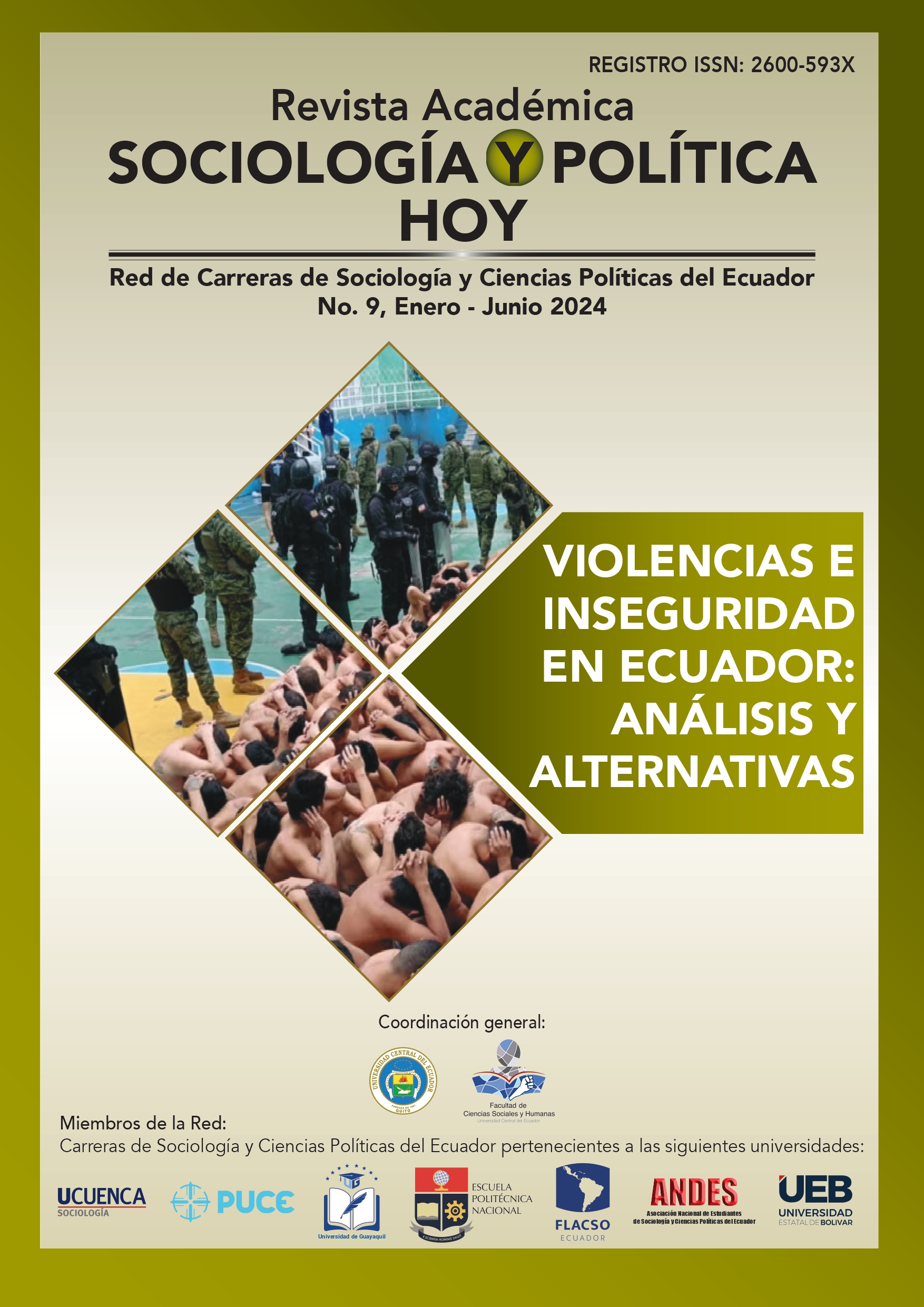Violence, authoritarianism and mafia state
Keywords:
violence, authoritarianism, organized crimeAbstract
Violence is understood as the physical intervention of an individual or group for themselves or among themselves in a certain social order. In a descriptive sense, the term can be considered synonymous with “strength”, and is different from the notion of power. Power is the modification of the behavior of individuals or groups endowed with at least a minimum of voluntariness. Violence is the harmful alteration of the physical state of individuals or groups with or without the presence of homicides.
The central idea of this essay is the following: authoritarianism as a government practice can cause the emergence of groups that use power for their own benefit, reaching penetrating levels of violence until gradually structuring a mafia state. It constitutes a non-formal economic business carried out by criminal groups of several people who organize and function in a structured manner for a certain time, acting in concert with the purpose of committing one or more crimes.
Authoritarian states co-opted by closed groups which could establish links with organized crime in a predatory, parasitic and symbiotic way. A social structure is formed where the regression of individual rights establishes an exclusive society where there seems to be a change in the character and structuring of organized violence, thus generalizing the use of violence with manifest public insecurity implying common crime, organized crime and even the use of biopower.
Metrics
References
Ávila, A. (abril, 2012). “Crimen organizado, narcotráfico y seguridad” en Catalina Niño, editora, Crimen organizado y gobernanza en la región andina: cooperar y fracasar. Quito, Friedrich Ebert Stiftung.
Bermúdez, L. (1989). Guerra de baja intensidad. México, D.F. Siglo XXI Editores.
Bobbio, N. Matteucci, N. (1982). Diccionario de Política, Tomo I y II. México, DF. Siglo XXI Editores.
Carrión, F. (2022). “La violencia en el Ecuador, una tendencia previsible”, en Ecuador Debate 117. Centro Andino de Acción Popular, (15-40). Quito/Ecuador. El Chasqui Ediciones.
CEPAL. (26 de abril de 1989). La dinámica del deterioro social en América Latina y el Caribe en los años ochenta (Nota de la Secretaría). Santiago de Chile.
Cueva, A. (1977/2002). “Posfacio. Los años ochenta: una crisis de alta intensidad”, en El desarrollo del capitalismo en América Latina. México, DF. Siglo XXI Editores.
Germani, G. (1979/2010). “Democracia y autoritarismo en la sociedad moderna”, en La Sociedad en cuestión. Antología comentada. Instituto de Investigaciones Gino Germani, Facultad de Ciencias Sociales Universidad de Buenos Aires / CLACSO.
Gunder, F. (1973). Lumpemburguesía: lumpendesarrollo. Dependencia, clase y política en Latinoamérica. Chile, Ediciones Periferia S.R.L. Impreso en Argentina.
Halperin, T. (1987). Historia contemporánea de América Latina. México, DF. Alianza Editorial Mexicana, S.A.
Lechner, N. (1981). “Presentación” y “Epílogo”, en Ernesto Laclau, Sergio Zermeño, Edelberto Torres Rivas, Fernando Rojas, Oscar Landi, Guillermo O’Donnell, Adam Przeworski, Fernando H. Cardoso, Estado y Política en América Latina. México, D.F Siglo XXI Editores.
Pease García, H. (2003). La autocracia fujimorista. Del Estado intervencionista al Estado Mafioso. México, D.F. Fondo de Cultura Económica.
Sain, M. (octubre 2010). “Tendencias del crimen organizado en América Latina y el Caribe”, en Hans Mathieu y Catalina Niño Guarnizo, editores, Seguridad Regional en América Latina y el Caribe. Bogotá. Friedrich Ebert Stiftung.
Shaohua, Y. (2009). “How Can Weak Powers Win?” en Chinese Journal of International Politics, Vol. 2.
Downloads
Published
How to Cite
Issue
Section
License

This work is licensed under a Creative Commons Attribution-NonCommercial 4.0 International License.
Esta obra está bajo una licencia internacional Creative Commons Atribución-NoComercial 4.0.









